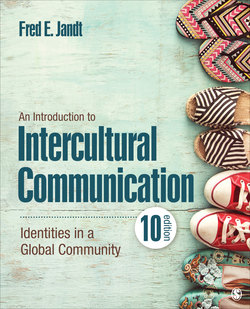Читать книгу An Introduction to Intercultural Communication - Fred E. Jandt - Страница 133
На сайте Литреса книга снята с продажи.
Hong Kong
ОглавлениеBritain’s 19th-century conflict with China enabled British traders to continue exchanging Indian opium for Chinese tea and silk, making huge profits while devastating China. Defeated in these wars, China was forced to open ports up and down the coast not only to the opium trade but also ultimately to foreign diplomats, residents, missionaries, and traders of every kind. Hong Kong island was ceded to Great Britain in perpetuity in 1841, the Kowloon Peninsula in 1860, and another slice of the mainland in 1898.
Hong Kong is slightly smaller than Los Angeles and home to 7.2 million people. It is one of the world’s great cities, with the world’s fourth-largest containership port, one of the world’s largest airports, the fifth-largest stock exchange in the world, and an impressive trade and financial infrastructure. In 1997, this symbol of free enterprise was returned to China. In a critically important move, in 1990, China promised Hong Kong residents in the Sino-British document known as the Basic Law “one country, two systems.” Hong Kong would be a special administrative region of China, with press freedom and continuance of its capitalist economic and social system guaranteed for at least 50 years after the takeover. Currently, Cantonese, English, and Mandarin are all official languages. In everyday life as well as de facto in government, Cantonese is most common. By 1998, most public schools had switched from teaching in English to Cantonese along with English. China has made it clear that Hong Kong was never a democracy under British rule. The colony’s governor was appointed by the British government. It wasn’t until 1991 that Great Britain allowed the first direct election of a portion of the seats in Hong Kong’s legislature. Prior to the return, China wrote a new constitution for Hong Kong, reversing some of the civil and democratic rights legislation that was passed after the Basic Law agreement without China’s consent. Hong Kong’s first chief executive after the return was selected by Beijing through a process of indirect elections involving a campaign and vote by 400 businesspeople and community leaders selected by Beijing. Hong Kong’s elected legislature was replaced by an appointed one. Currently, Hong Kong’s legislature is a semi-democratic body.
Some believe Hong Kong’s leaders will be unable to maintain political distance from Beijing, as laws were changed in 2001 so that now the chief executive is chosen by a 1,200-member election committee largely composed of Beijing loyalists. So the committee essentially serves at the pleasure of the mainland government. And in 2007, China announced that Hong Kong would have to wait before it could directly elect its leader, and the choice would be among two or three candidates approved by a special nominating committee.
Opposition to Beijing’s “one country, two systems” continues. In 2014, the “Umbrella Movement” brought tens of thousands of young pro-democracy protesters to the streets and demands for independence. Activists were arrested and charge that freedoms in Hong Kong have been dramatically curtailed. In the summer of 2019, an extradition bill was introduced that would have allowed Hong Kong to send people to China for trial but was met with demonstrations attended by roughly 1 in every 7 residents in a city of 7 million in fear of losses to freedom of speech and assembly. Hong Kong’s chief executive withdrew the bill. These demonstrations were a rare victory for Hong Kong’s autonomy as legislation is pending to impose penalties for disrespecting the Chinese national anthem. A 2019 University of Hong Kong survey showed that 71% of Hong Kongers were not proud to be part of China; 90% of young people felt that way. The percentage of people who identify as Chinese dropped to a record low of 11%, and those identifying as Hong Kongers reached a record high of 53% (Dixon, 2019; University of Hong Kong, 2019).
In 2014, democracy protests were called the Umbrella Movement as protesters used umbrellas as a tool of passive resistance to police use of pepper spray. Protests ignited again in 2019 in response to a proposal to allow local authorities to extradite Hong Kong residents to mainland China jurisdictions undermining Hong Kong’s autonomy.
NICOLAS ASFOURI/AFP/Getty Images
